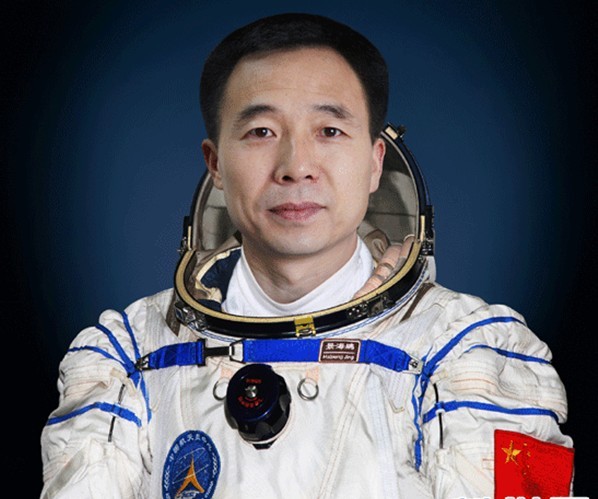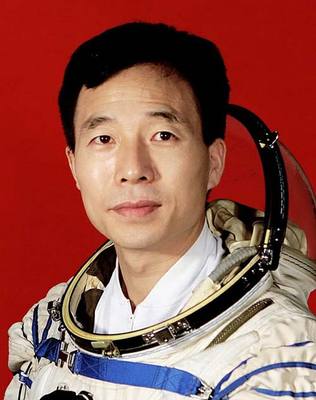
Jing Haipeng celebrates his birthday in space and uses VR technology to "see" his family in space
After research and decision by the mission headquarters, it aimed at launching the Shenzhou XI manned spacecraft at 7:30 on October 17. The flight crew consisted of astronauts Jing Haipeng and Chen Dong, and Jing Haipeng served as commander.
Jing Haipeng, who has performed two missions of Shenzhou VII and No. 9, has been "arrested" for the third time to serve as commander of Shenzhou XI. This is the first time among Chinese astronauts. Jing Haipeng is 50 years old. "Old age" also created a record for Chinese astronauts.
Jing Haipeng’s partner is 38-year-old astronaut Chen Dong. According to Li Xinke, secretary of the Party Committee of the China Astronaut Research and Training Center, Chen Dong is a third-level astronaut of the space team and a rank of lieutenant colonel. Born in December 1978 in Luoyang, Henan Province, he obtained a bachelor's degree and was admitted to the military in August 1997. In May 2010, Chen Dong became the second batch of astronauts; in June 2016, he was selected for the manned mission of Tiangong 2 and Shenzhou XI.
“One hundred percent trust each other, but not one hundred percent believe in 'the other'â€
One was the first astronaut who had performed two manned space missions, and the other was a second astronaut who had never gone to heaven. China Youth Daily and China Youth Online reporter noted that the age difference between Jing Haipeng and Chen Dong is 12 years old. When Jing Haipeng was selected as an astronaut in 1998, Chen Donggang joined the army soon. In the implementation of the task, how will the two cooperate?
When answering a question from the China Youth Daily and China Youth Online reporter, Chen Dong said that after six years of training and running-in, the two people already knew each other very well. “After entering the group, we have more than 10 hours of daily work training. Far more than the time spent with family."
"The second batch of astronauts are young, full of vigor and vitality, and they are very passionate about the manned space industry." Jing Haipeng said, "As the first astronauts, I was a member of the astronauts earlier than theirs and experienced more than them. But I think that old and new collocations do not work.â€

"There is a sentence King brother said very well, called 'to trust each other 100%, but can't believe 'the other' 100%." ​​Chen Dong said.
"What is trust? It's the two of us who are both dead and dead," he explained. However, Chen Dong also said that when doing anything, there may be negligence. At this time, it is necessary to give full play to the advantages of the two people and to complement each other in order to ensure that every action and each instruction is accurate.
For "can not believe 100% of the other party," Jing Haipeng feels deeply. In a recent training session, when Jing Haipeng was preparing for an operation, Chen Dong suddenly said, "Please wait a moment." Jing Haipeng immediately realized that he had almost made a mistake. "Although I am the chief commander and oldest brother, Chen Dong has to listen to me, but he never blindly obeys, but he skillfully stops my actions." Jing Haipeng said.
Such cooperation and tacit understanding need to be run in long-term training.
Chen Dong recalls that during a drill, there was a movement wearing a pressure-resistant glove. The movement itself was very simple, but Chen Dong had a place where he was not stuck and the movement was slow. Through the rest of his eyes, he saw that Jing Haipeng had already put on his gloves and suddenly felt some pressure. He did not wear gloves after adjusting several times.
After the exchange training, Jing Haipeng said that he would try to be consistent in training afterwards to avoid that one person had not completed the action and the other had finished early, which would bring pressure to the other side virtually.
In the interview, Chen Dong customarily referred to Jing Haipeng as “Jing Shixiong†and Jing Haipeng called Chen Dong “my brotherâ€. However, when performing the task, the two people's titles will only be "01" and "02."
Huang Weifen, deputy chief designer of the astronaut system, said that the adoption of "new and old collocations" is to take into account the status quo and future of the astronaut teams and hopes that more astronauts will perform future tasks.
According to the design of high school students in Hong Kong, Jing Haipeng and Chen Dong will sericulture in space
Compared with the previous manned space missions, the Shenzhou XI manned mission is characterized by a large number of experiments and experimental projects. There are dozens of astronauts who need to operate it personally, and many of them are highly professional. Test.
On the same day that he was interviewed by the media, Jing Haipeng and Chen Dong were also intensively training experimental operations. Their training experiment project that day was “cardiovascular research under weightless conditionsâ€â€”when there was no gravity, the human body's body fluids redistributed, and the ability of cardiovascular regulation and blood pumping would be different from that of the ground. On the ground, doctors use a B-probe to probe the four chambers of the heart. In the sky, Jing Haipeng and Chen Dong can only rely on the overall configuration of the heart and the image of the aortic valve. Then the image is transmitted to the ground for comparison with professional doctors.
A medical doctor told Jing Haipeng that specialists must undergo training for more than one year before going to the clinic and seeing patients. However, Jing Haipeng only trained in less than half a year and he needed to perform related operations. Not to mention that there is no gravity in space. The position of the human heart is not exactly the same as when training on the ground. But Jing Haipeng said with a joke: "No matter how the position of the heart is changed, they can't run out of the chest."
Huang Weifen introduced that this experiment is expected to implement the first international assessment of on-track human microvascular endothelial function, exploring the mechanism of imbalance of cardiovascular function from the perspective of endothelial function.
In the past six months, in addition to normal flight professional training, astronauts have also received training in many scientific experiments. "We are not scientists. We use scientists' ideas, goals, and ideas to achieve through our hands." Jing Haipeng said.
Some experimental projects can be called "cool". For example, there is an experiment named "Brain-to-computer interaction technology on-orbit applicability". The experiment is expected to "build a brain-computer interaction control platform completely controlled by ideas."
In addition, according to the design of secondary school students in Hong Kong, Jing Haipeng and Chen Dong will sericulture in space to see if the silkworms in space are directional and able to form lice as if they are ground--and they have learned how to do this. Sericulture. This experiment made Jing Haipeng very interesting.
In fact, the significance of this task is far more than that. Jing Haipeng said that one of the tests of this mission is how the astronauts lived in space and how their physiological indicators were during the month. The space technology experiments and space science experiments conducted this time are all intended to prepare for the long-term manned flight of the future space station.
With VR technology, astronauts can "see" their family in space
Until three weeks before the mission, Jing Haipeng and Chen Dong’s family were unaware of this.
Before the selection of the astronaut brigade, Chen Dong had been a pilot for many years. A few years ago, he met his current wife at the resident. When the two had just met, Chen Dong's wife felt that the flight was unsafe and some worried about her husband's work. After many communication, she finally slowly dispel doubts.

This task is not the longest time Chen Dong left home. When he was a pilot, he used to perform training tasks outside the house and he never returned home for six months.
Talking about the family, Chen Dong, who was somewhat embarrassed, couldn't cover his smile. He has a pair of 5-year-old twin sons. "It's time for naughtiness." Chen Dong said that he had previously performed tasks outside, "not seeing or not." But this time, with VR technology, astronauts can "see" their families. Chen Dong thought: "If you see it, it will be somewhat different."
Jing Haipeng, who has experienced two manned space missions, looks very calm. During the mission, he will spend his 50th birthday in space. When performing the Shenzhou VII mission, Jing Haipeng’s wife had been worried and had not closed her eyes for three days and three nights. By the time of the Shenzhou 9 mission in 2012, she had become “commonplaceâ€.
During the astronaut’s mission to heaven, the astronaut brigade will also send people to the astronaut’s home. "After communicating with his wife, it should not be like (fear)." Chen Dong, who performed the manned space mission for the first time, said with a smile.